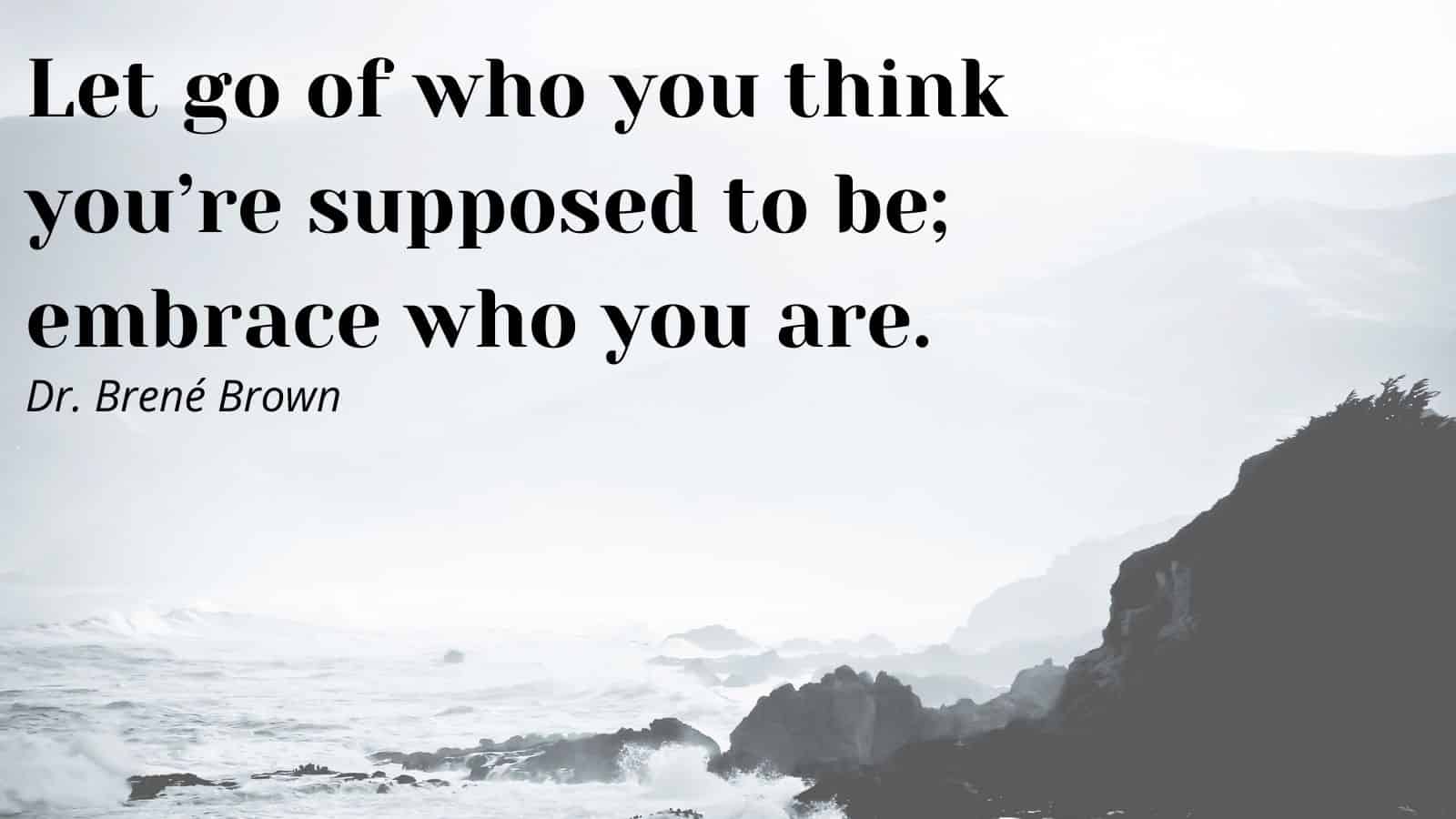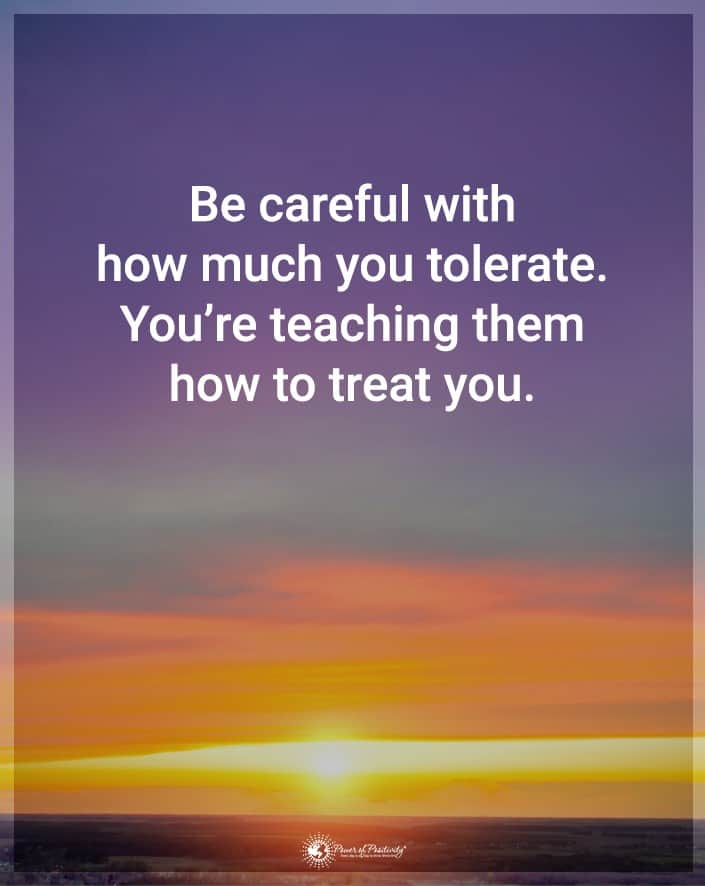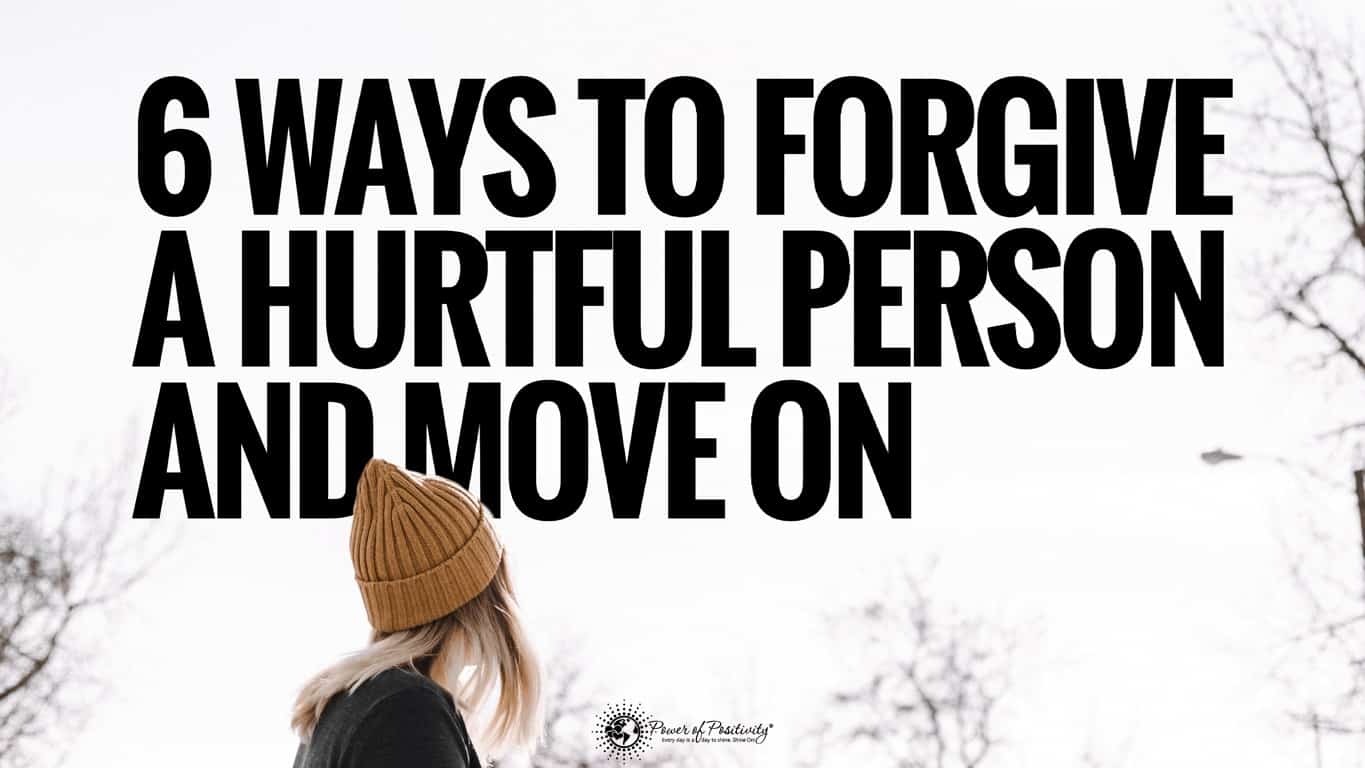When someone hurts you, it can leave noticeable scars that plague the rest of your life. There are some things you can recover from. But there are other ways in which a hurtful person causes pain that’s difficult to release.
You likely want to move on from the pain that you feel. Forgiveness can be an excellent way to start – but not in the way you may think! Here are six ways to forgive people who have hurt us so we can move on.
1. Think About The Benefits
It sounds a little selfish, but sometimes the best way to do something difficult is to remember that it benefits you. There’s nothing wrong with using that as a motivating factor, especially when you’re just starting on your forgiveness journey. Here are some significant effects of forgiveness to keep in mind:
 · It Helps Healing
· It Helps Healing
Resentment is a powerful and dangerous emotion, and it’s capable of completely stalling your journey and preventing you from finding peace and moving forward. Your emotional wounds can’t heal for as long as you hold onto the pain, and sometimes those wounds can become “infected” by that anger seeping into other areas of your life.
· It’s Good For Health
Studies have long indicated positive links between health and forgiveness. This is because the act of forgiving someone relieves stress, which provides plenty of benefits to your physical wellbeing. This includes reduced blood pressure, improved immunity, and better pain management. On the flip side, unhealthy resentment and anger can lead to heart issues, anxiety, and worsened self-esteem.
· It Can Improve Your Relationships
Resentment towards a person changes the way you view people and human nature in the world. That negativity towards only one single being who wronged you can creep into the relationships you share with everyone, even without you knowing. Being compassionate towards yourself and those you hold resentment for can change your outlook for the positive, fostering healthier and happier relationships with others in your life who are good to you.
· It May Lead To Positive Reconciliation, If You Want It
Resentment can stop you from reconciling with that person who wronged you. In some cases, this isn’t a problem, and you’re well within your rights to not want to “make nice” face-to-face with someone who’s wronged you. But in others, you may wish to that reconciliation but not know how to go about it. Beginning with forgiveness is a fantastic way to go about it, as it gives you and the other party the chance to learn, grow, and recover.
2. Rethink Your Perspective On Forgiveness
Many people believe that forgiveness involves giving in to someone’s hostile treatment of you, actively condoning them, or even downplaying their toxicity. This isn’t the case at all. Forgiveness is a complex subject, and it doesn’t mean:
- Turning the other cheek
- Approving of someone’s actions
- Admitting fault or invalidating your emotions
- Pretending something didn’t happen
- Opening yourself up to future harm from the same person
- Letting someone walk all over you
In fact, it’s quite the contrary! Forgiveness isn’t about letting someone off the hook. It’s about finding the courage and strength to use your energy for something more productive and allowing this act of toxicity to remain in the past as you move forward. For example, forgiveness can involve:
- Deciding to be happy instead of angry.
- Refusing to be bound by past negativity that keeps you upset and harms you.
- Freeing your energy for more productive endeavors.
- Deciding that resentment no longer serves you.
- Giving yourself a clean slate for future interactions with other or new people.
- Choosing to move on instead of being held back.
When you realize that forgiveness is more about your personal healing than someone else’s, it’s easier to understand that it’s good for you.
3. Take Responsibility
Taking responsibility does not necessarily mean blaming yourself for the harm caused by a hurtful person. Instead, it means remembering that your current actions and the actions you take for the rest of your life depend on you.
If you’ve held onto resentment for so long, it can be tough to let go, but your positive thinking can be damaged when you hold on to blaming others as a coping mechanism. So start taking some responsibility for your life so you can begin to forgive. Here are some ways to do so:
· Understand Your Emotions And Disregard Those Who Caused Them
The feelings that come from being hurt are ones you must take time to reflect on and understand. Focusing too much on blaming those who caused these emotions can mess up your chances of working on self-reflection. So shift your mental concentration and energy to your feelings alone. Let yourself feel them, even if they hurt, and watch them. Then, think about why those emotions are happening, and tell yourself that it’s okay to feel those feelings and that they aren’t “wrong” to have. Finally, ask yourself how you can move forward with these emotions and how to soothe them positively, then walk on into your life with that.
· Choose Not To Take It Personally
This sounds tough to do, and to be fair, it is. But there are awful people worldwide, and if someone did something horrible to you, it’s not a reflection of yourself. In fact, it likely had almost nothing to do with you. You were the unfortunate victim of the explosion of that person’s issues, and nothing they said or implied about you reflected on you – it was their projection, and you don’t need to be offended by that.
· If You Did Contribute, Accept That
There are plenty of people who do hurtful things, and it truly is only on them that you were affected. But there are also times when hurt is born out of hurt, or when two people were harming each other, and one person just happened to overstep first. If you did contribute in some way to the circumstances where someone hurt you, admit and accept that fact. Reflect on how to improve in this area of your life and how to prevent repeats. However, don’t overdo this. Acknowledging your part doesn’t mean assigning all blame to yourself. It means looking at a situation factually and rationally, and correctly holding yourself and everyone else involved accountable.
 4. Ask Yourself Perspective-Shifting Questions About Your Relationship with the Hurtful Person
4. Ask Yourself Perspective-Shifting Questions About Your Relationship with the Hurtful Person
Changing your perspective is often key to finding it in yourself to forgive. This is because gaining a proper understanding of something or someone that hurt you can dramatically change the way you’ve thought of that pain.
Ask yourself a few questions to get yourself started, and then once you’ve answered any of them, follow the trails of thought they lead you down and see if you find some excellent self-reflection within.
Here are some questions to begin a paradigm shift in how you think about the hurtful person:
- How would someone on the outside looking in view the situation?
- Is there a pattern here? Have I been hurt in this way before, perhaps even many times?
- Have I inflicted this hurt upon other people before?
- What was the perspective, whether right or wrong or neither, of the person who hurt me?
- Does the person who hurt me have low emotional intelligence?
- Does the person who hurt me have significant personal issues or baggage that they unfairly took out on me, thus not reflecting my character at all?
- Is there something positive that I can take away from this?
- How have I grown because of this pain?
- Have I let this pain rob me of things in my life?
- Does the resentment and lack of forgiveness benefit me, or is it holding me back?
- What can I learn from this situation?
- Is my decision to hold onto this resentment keeping the pain alive?
5. Let Go of the Victim Mentality
Victim mentality is a mindset where you excuse everything that happens to you and everything you do because you were a victim. You may even believe that you are continually being victimized to this day whenever something bad happens to you. You may say things like:
- “If only that person hadn’t ruined my confidence, I would have aced that speech!”
- “I would have gone much farther in life if they hadn’t held me back.”
- “I’m only suffering all the time because of the things they did to me.”
The pain inflicted by a hurtful person can indeed cause deep wounds that take time to heal. But it becomes impossible to heal when you assign every single problem in your life to that one incident. You are a changed person, yes – but at some point, you need to learn who you are and take responsibility for moving your own life forward. Are you really going to let someone who hurt you hold you back forever? It’s time to create productivity, not drama.
6. Work On Positivity
Positive thinking is sometimes the best way to tide you over when you’re struggling with a subject as painful and scarring as giving forgiveness. When you learn to see the world with a positive lens, you naturally find that forgiveness comes more easily. Here are some ways to promote positivity in your life:
· Work Towards Your Happiness
Someone’s hurtful actions shouldn’t stop you from progressing towards the things you love. Find joy in life and set goals for specific achievements that you desire. It is never too late to begin seeking your happiness in life again or to start finding it in minor parts of your life.
· Focus On Good Things
There are good and bad parts of life. Learning to focus on the good things and even find them in swathes of bad can dramatically change how you view the world. That kind of positive thinking can make you realize that the resentment isn’t serving your life.
· Forgive Yourself
Do you harbor resentment towards yourself over the events that hurt you? Maybe you played a role in the events leading up to it. Perhaps you feel guilty for struggling to forgive or for not being able to move on. Regardless, it’s essential to forgive yourself. Learning to begin forgiveness with you means you know to give forgiveness to others.
 Final Thoughts On Some Ways To Forgive a Hurtful Person and Move On In Life
Final Thoughts On Some Ways To Forgive a Hurtful Person and Move On In Life
When considering the subject of forgiveness, it’s important to note that it’s an entirely personal process. You don’t owe any individual your forgiveness, but you owe it to yourself. You don’t even need to tell a hurtful person that you forgive them if you don’t want to. But you do need to say to yourself that you’re moving on and letting go of the resentment that held you back. That, honestly, is more than enough.


















